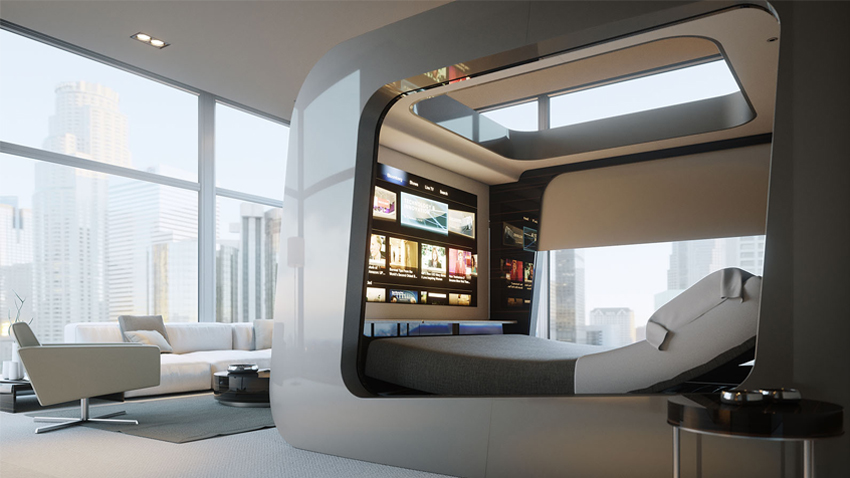The Internet of Things (IoT) is one of the most important emerging trends in the hospitality industry. A study done by Juniper Research in December 2016 indicated that more than 46 billion devices would be connected to IoT by 2021. This technology is therefore important for hospitality service providers who should make the most of it to enhance growth and customer experience.
What is the Internet of Things (IoT)?
Internet of Things (IoT) is an emerging technology that represents the ability to connect physical objects with the internet. The technology has been used in several household appliances, which has led to the creation of “smart houses.” In the hospitality industry, many hotels already use IoT to centrally monitor and regulate guest room temperature and lighting.
In such facilities, the IoT works through sensors installed in the thermostats and HVAC systems. The technology allows hotel owners to cut the energy costs in vacant rooms. Additionally, IoT provides luxurious, comfortable, and seamless hospitality experience.
Here are ways by which hotel managers, owners, and other players can use IoT to enhance the hospitality industry.
Boost Productivity
In today’s business space, automation is one of the most important trends. Automation serves one very important purpose for businesses—it saves time. In the hospitality industry, hotels can utilize the concept of IoT to create automation and save time. This in the end increases motivation and efficiency, as employees focus on other areas that require more attention.
Hyper-Personalised Hotel Rooms
Hospitality service providers are using the Internet of Things technology to create hyper-personalization. The idea of having a ‘connected room’ concept allows visitors to control many of the guest room features from their mobile phones or a device provided by the facility. It all boils down to a high level of personalization.
With IoT, hotel guests can control heating, ventilation, and air conditioning systems from one point. Besides, they can specify a temperature through voice command and the connected devices will automatically switch to the stated temperature. IoT can equally control the television and some connected devices even recognize the guests and greet them by name.
Location-based Information
Location- based information is mainly accessible through Bluetooth and GPS technologies. These concepts have opened up new possibilities of accessing real-time information, which hotels can utilize. Hotel owners can link the Internet of Things concept with these technologies to send their customers real-time messages when they most need them.
For instance, IoT can be used to send SMS messages regarding menu items when the guests are almost arriving. Additionally, hoteliers can harness IoT to advertise real-time gym services just when they are near the gym. They can also use the technology to relay timely information about transport links or nearby attractions and to optimize their staffing levels.
Detailed Customer Profiles
By using IoT to achieve personalization, hoteliers get to know their customers better including their preferences, routines, and many more. They can use this information to serve their visitors faster and better on subsequent visits. The integration of IoT allows hoteliers to learn more about their customers and anticipate their needs.
Facility Maintenance and Reduction of Unwanted Expenses
When hospitality management taps on the potential of the Internet of Things (IoT), they can centrally monitor nearly all room facilities including in-room lightings, temperature, curtains, shower, TV, and even housekeeping. That way, hotel staff can easily fulfill laundry requests such as towels, bedsheets, and others.
Besides, IoT makes it easier to centrally turn the power off automatically when the guests leave the rooms or leave the balcony door open. This helps hotel management save money on energy costs. Alternatively, IoT can enable hotels to save more through predictive analytics.
Predictive analytics is a forecasting concept that foresees the time a certain problem is likely to occur to a device. This concept can help hotels avoid embarrassing situations of appliances breaking down or last-minute arrangements because devices are not well maintained.
Inventory Tracking and Management
Inventory tracking and management are some of the major challenges that modern hotels face. The IoT technology can help solve this problem, especially when it comes to automating tasks at the front desk. In many facilities, the front desk still manually feeds data into their property management systems.
IoT can change how hotels track and manage their inventory. This is possible by using scanners and other high-tech devices to enable staff to monitor inventory automatically. It frees up their time and allows them to focus on other demanding tasks. In the end, the hotel management staff can achieve productivity and efficiency.
Electronic Key Cards
The IoT technology has brought a shift from the traditional system of locking and unlocking hotel rooms to a smart operation. IoT has opened up a new possibility of using digital or electronic key cards, which allow guests to unlock their rooms through their smartphones.
This concept eliminates the use of a separate key, which is often prone to misplacement. The potential of IoT goes much further. With the technology, hotel staff can automatically send the electronic key to a guest’s mobile phone, probably one hour before check-in time.
Through internet communication technology, they link up the door with the check-in desk. Once they arrive, guests can by-pass the check-in desk and proceed straight to their rooms.
Voice-Controlled Customer Service
Voice-controlled customer service is another concept that utilizes IoT technology. Some hotels already use this technology to deliver a superior customer experience. Voice-controlled customer service allows guests to book a table at the hotel restaurant, request room service, or book a spa session.
Customers can easily do these things by speaking to a device in their rooms. This concept is growing and likely to expand over the next five years to improve efficiency in the hospitality industry.
Final Thoughts on the Internet of Things (IoT)
As the hospitality industry wakes up from the effects of the global pandemic, service providers must aim to give their customers a new experience by providing seamless front-end service. To achieve that, hotels must implement efficient back-end support with sufficient data and tight security.
By leveraging the IoT technology, hotel owners can achieve the possibilities mentioned here and more. All the same, they have to make sure to implement strong cybersecurity apparatus. Many IoT-enabled devices don’t have cyber protection, which makes them vulnerable to attacks and threats. Hackers can gain access to the appliance networks and attack a hotel’s digital infrastructure.
Author Bio
Alexander Mirza, The Founder & CEO of Mogul – Humanizing Travel. Its platform Staymogul.com provides booking, services, and Mogulrecruiter.com provides talent solutions for the hospitality industry.





